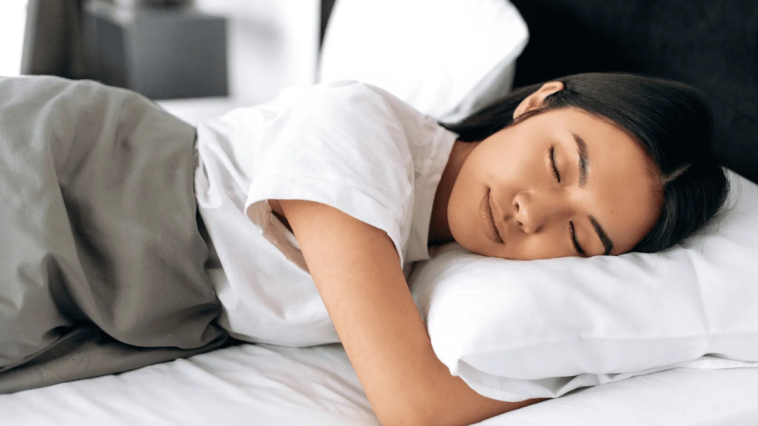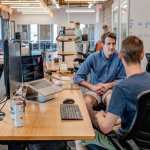Singapore rarely sleeps. Its skyline, brilliant and sharp against the midnight sky, is mirrored by the constant hum of productivity below. Cafés remain open past midnight. Corporate offices have lights on deep into the early hours. And a growing demographic of students, young professionals, and digital nomads willingly sacrifice rest for the next goal, grade, or gig.
But in the shadow of this hustle culture, a silent epidemic is brewing. More Singaporeans, particularly younger ones, are waking up not feeling rested but fatigued, foggy, and anxious. And it’s not always burnout or anxiety. Increasingly, sleep apnea, specifically Obstructive Sleep Apnea (OSA) is emerging as the unexpected villain in our 24/7 lifestyle.
The Anatomy of a Sleepless City
Urban living isn’t just about convenience and opportunity. It comes with a unique set of stressors. High expectations, competitive job markets, and the glorification of overworking have made sleep an expendable luxury for many. But this sacrifice comes at a cost.
One of the leading concerns? Sleep apnea, a condition characterised by pauses in breathing or shallow breaths during sleep. In OSA, the throat muscles intermittently relax and block the airway. The result: fragmented sleep, reduced oxygen levels, and a host of health complications, from high blood pressure to cognitive dysfunction.
What makes this concerning in Singapore is not just the medical implications, but how lifestyle factors intensify the risk and delay diagnosis.
From Blue Light to Blackout: Tech and Sleep Don’t Mix
Tech is at the center of urban life. But constant connectivity is also a leading disruptor of circadian rhythms. The blue light emitted from phones, tablets, and laptops interferes with melatonin production, the hormone that regulates sleep.
Many young professionals and students wind down their day not with a book or silence, but with TikTok, email, or Netflix. The consequences aren’t always immediate, but over time, reduced sleep quality lowers the body’s ability to recover, and consistent fatigue becomes normalised. It’s in this vulnerable state that sleep apnea symptoms, snoring, gasping during sleep, excessive daytime sleepiness, begin to show.
Specialists are seeing more patients under 35 reporting chronic fatigue and concentration issues. Many of these cases lead to a diagnosis of mild to moderate OSA. It’s a shift from the traditional perception of sleep apnea as an older person’s condition.
The Invisible Risk Factor
Singapore’s workforce is evolving. With a growing economy fueled by tech, healthcare, hospitality, and logistics, more people are working irregular hours, night shifts, split shifts, or back-to-back overnight tasks. The human body, however, isn’t built for this.
Disrupting the natural sleep-wake cycle increases inflammation, alters metabolism, and reduces the tone of airway muscles, all of which can aggravate or trigger obstructive sleep apnea. And when sleep apnea is left untreated, it doesn’t just affect sleep. It leads to poor job performance, memory lapses, mood swings, and increased risk for cardiovascular issues.
Among nurses, delivery drivers, call center agents, and even digital freelancers, fatigue is common, but its cause is often misattributed to the nature of their work. Rarely do they consider underlying sleep disorders. That’s why ENT doctors are now encouraging young adults in shift-based jobs to seek consultations if they experience consistent sleep disruptions.
Mental Health Awareness Month: The Sleep-Mental Health Connection
May marks Mental Health Awareness Month, a time to highlight the deep interplay between sleep and psychological well-being. Sleep apnea doesn’t just lead to physical fatigue; it’s intricately tied to mental health.
Sleep fragmentation affects the brain’s ability to regulate mood. Patients with undiagnosed OSA often report symptoms mirroring depression or anxiety, irritability, low motivation, difficulty concentrating. It’s a vicious cycle: poor sleep exacerbates stress, and stress in turn worsens sleep quality.
In Singapore, where mental health stigma still lingers, many may not report these symptoms until they interfere significantly with daily life. That’s where awareness campaigns become vital, not just to address mental health in isolation but to explore physiological contributors like sleep apnea that may fly under the radar.
Why Sleep Apnea is Underdiagnosed in Singapore
Despite rising awareness, many people in Singapore remain unaware of how ENT specialists in Singapore can help address sleep apnea. Part of this is due to misconceptions. Snoring is often joked about or dismissed. Daytime fatigue is seen as a badge of honor, proof of productivity.
Moreover, because sleep apnea symptoms can be subtle or resemble general exhaustion, it’s rarely the first suspect. Many individuals only seek help after significant issues, like high blood pressure, frequent headaches, or persistent poor sleep develop. ENT doctors emphasise that even “light snorers” should pay attention if they wake up unrefreshed or feel perpetually tired.
What’s encouraging, though, is that Singapore’s medical ecosystem is adapting. More general practitioners are referring patients for sleep studies. ENT doctors and ENT specialists in Singapore are using multidisciplinary approaches, combining lifestyle assessments with advanced diagnostics to tailor treatments ranging from CPAP therapy to nasal surgery or oral appliances.
The Role of ENT Doctors in Urban Sleep Health
When it comes to sleep apnea, ENT doctors play a central role. From evaluating nasal obstructions and airway anatomy to conducting sleep studies, their expertise is crucial in both diagnosis and long-term management.
An ENT specialist Singapore-based in a private practice notes that they’ve seen a 20% increase in consultations related to snoring and sleep-related complaints among adults aged 25–40 over the past two years. Interestingly, many of these patients don’t fit the traditional risk profile (overweight, middle-aged males) but instead are thin, tech-savvy individuals working high-pressure jobs.
This shift is pushing ENT professionals to also address lifestyle. That means guiding patients toward better screen hygiene, recommending sleep schedules that align more closely with natural circadian rhythms, and even collaborating with psychologists or sleep coaches.
The Gender Gap in Diagnosis
Sleep apnea doesn’t discriminate by gender, but it often goes underdiagnosed in women. In part, this is due to how symptoms manifest. Women are less likely to report loud snoring and more likely to experience fatigue, insomnia, or mood disturbances.
As more women enter high-demand careers in Singapore’s urban economy, their exposure to sleep-related issues is increasing. But stigma around appearing weak or “unwell” in the workplace prevents early medical intervention.
ENT specialists in Singapore are beginning to address this by offering more gender-sensitive consultations and increasing awareness around how sleep apnea presents differently across demographics.
Making a Lifestyle Change, Not Just a Medical One
While clinical intervention is essential, so is lifestyle change. ENT doctors increasingly advocate for a holistic view of sleep health, especially for urban dwellers. That means not just treating sleep apnea with machines or surgery, but encouraging preventive habits like:
- Limiting screen exposure before bedtime
- Adopting consistent sleep-wake routines
- Reducing alcohol intake, which can worsen airway obstruction
- Managing stress through mindfulness, therapy, or structured breaks
These aren’t just wellness tips, they’re scientifically backed methods to improve sleep architecture and reduce the severity of conditions like OSA.
From Restless to Rested
Singapore’s pace isn’t likely to slow down. Ambition, opportunity, and innovation will continue to fuel long work hours and digital immersion. But in this forward-moving city, there must also be room to pause, especially if that pause means better sleep, stronger health, and a clearer mind.
As May shines a light on mental well-being, it’s also the perfect time to ask deeper questions about rest. Not just “Am I sleeping enough?” but “Is my sleep restorative?” “Do I feel clear-headed when I wake up?” and most importantly, “Could I be living with undiagnosed sleep apnea?”
If the answer is unclear, then speaking with an ENT doctor could be the first step toward reclaiming not just your nights, but your days.




